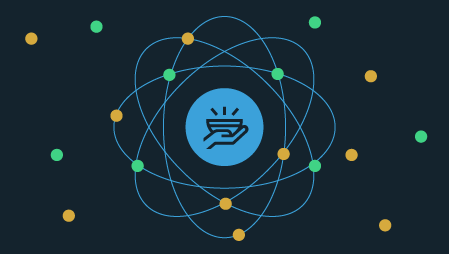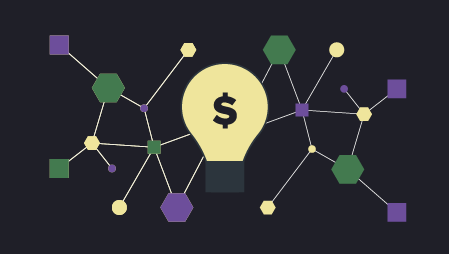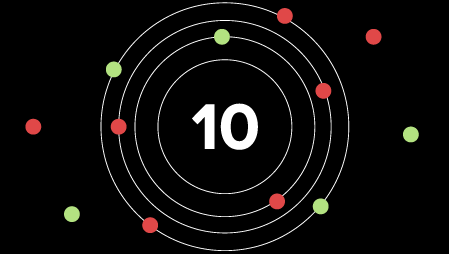The words of Chuck Robbins, chairman, and CEO of Cisco Systems, wonderfully sums up the essence of IoT. He said,
“The opportunity we have is to build a secure, intelligent platform that solves some of the world’s greatest problems at scale. That’s what’s possible with hundreds of billions of connections and the capabilities that we can deliver together.”
The Internet of Things is one of the most remarkable technologies of today that is leaving a footprint everywhere. IoT is transforming connectivity and communication with its marvelous vision. By 2023, the global market for IoT is predicted to reach $318 billion. In 2018, it was at $130 billion. So what we are seeing is an annual growth rate of about 20 percent! Doesn’t the statistics make it evident the heights IoT technology is going to scale?
Of the various components that create an IoT system, one that is most significant and in the immediate realm of people is mobile apps. Mobile apps are the interfaces through which users communicate with IoT devices. It is through these apps that they monitor, control, and access IoT devices. Therefore, it is self-explanatory that mobile app development will grow in ways to power IoT technology.
The Ways in Which Mobile Apps are Impacting IoT
The relationship between IoT technology and mobile apps are of mutual growth. IoT strengthens the value of mobile apps while mobile apps leverage IoT technology. To understand the ways in which mobile apps are impacting IoT, we will take a look at some of the most IoT-influenced sectors and see some real-world examples.
Wearables
One of the most extensive applications of IoT technology can be seen in wearable devices. We are all familiar with wearable devices like Apple Watch, Fitbit fitness trackers, etc. These devices are seamlessly integrated with their corresponding mobile apps. Apart from showing information on the screen of the wearable, the device relays data to the corresponding mobile applications for users to access it.
Mobile apps play a crucial role in uncovering the full potential of wearables. For example, in the case of Fitbit fitness trackers, the mobile app stores the users’ health data, enabling them to monitor it and analyze their fitness and health. The Fitbit users can decide on a fitness plan and execute it with the data made available to them through the apps. The Fitbit device alone cannot provide such extensive functionalities.
Smart Homes
A decade ago, smart homes were just a concept of the future, and the general idea was that they would be a luxury that only the wealthy could afford. But look at where we are today! With devices like Amazon Alexa, Echo, and Google Home, smart homes have become an affordable reality.
It goes without saying where the control of the smart homes lies- with the associated mobile application. The mobile app is the central control panel that can be used to manage the multiple devices associated with smart homes. For example, users can control light bulbs, temperature, plugs, etc., in a smart home remotely using the mobile application. Thus, smart homes are much dependent on mobile apps, and without them, the concept would fail to become practical.
Connected Cars
Another innovation that has come into existence owing to the benefits of IoT is connected cars. A connected car is an IoT system with several IoT devices in it. The car can be connected to a mobile application and used to access details like fuel, speed, location, etc. It also lets users control the car camera, locking mechanism, air conditioning, etc.
Mobile apps are the driver of connected cars. Each car manufacturer will have its own unique app that the users must download to operate the connected car. So we can see how significant the role of mobile apps is in the case of this IoT ecosystem.
Agriculture
Digital transformation technologies are revolutionizing industries worldwide. In the agriculture sector, a technology that is reaping several benefits is the Internet of Things. By using several on-field devices and sensors in the agricultural land, farmers can monitor and maintain their crops better. It further helps them monitor their inventory and livestock, prepare for climatic changes, and perform agricultural activities with better efficiency.
Farmers use applications for controlling the on-field activities, analyzing information, and initiating actions. Mobile applications are mostly used because they are convenient and handy. Also, they can be set up with minimum investment compared to setting up a separate monitoring and controlling system. So mobile apps enable farmers of all levels, big or small, to utilize IoT for agricultural purposes.
Healthcare
The technological advancements in the healthcare sector have always been visionary. With features like remote medical assistance, robot-assisted surgeries, non-invasive treatments, etc., the healthcare sector has always made the best use of innovative technology. Devices for glucose monitoring, heart rate monitoring, connected inhalers, ingestible sensors are some other examples of IoT devices in healthcare.
Most of these devices depend heavily on mobile applications for their proper working. In fact, these apps are the life and blood of such monitoring devices. They provide alerts, keep records, and ensure that the patients are under constant supervision. Thus, the IoT ecosystem and the connected mobile app ensure the best healthcare to patients and better practice to doctors.
Wrapping Up
In one way or the other, IoT devices are becoming a part of our everyday lives. And much of its credit goes to the mobile apps. Mobile apps act as the mediator between the IoT devices and the users. The growth of one fuels the growth of the other. As IoT technology is swelling in market demand, creating an IoT app is a wise and beneficial step to find a place in the future market.
Mobile app development pushes the Internet of Things forward. It provides a robust solution for maintaining IoT systems. And as we read earlier, IoT technology has endless potential. Tremendous growth is expected for it in the coming years. Although there are established players in the field, the market is not yet saturated. So now is the right time to hire a mobile app developer and start working on IoT app development.




